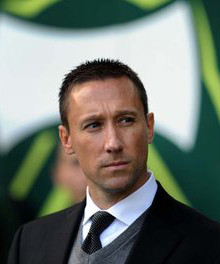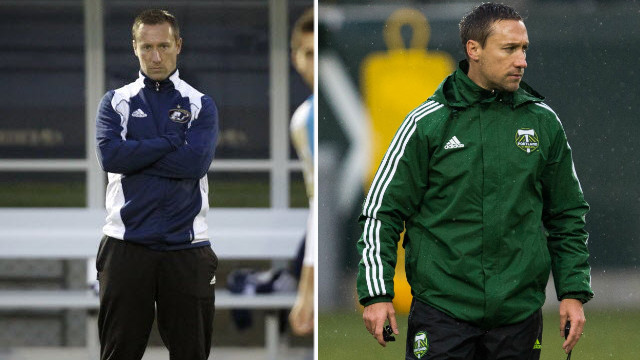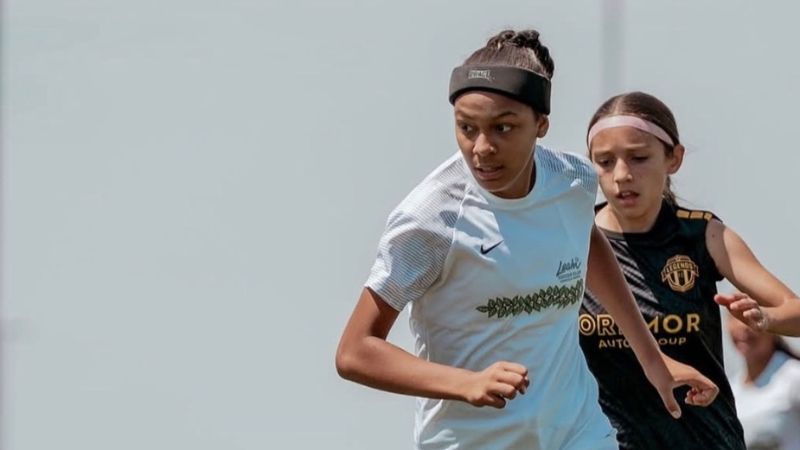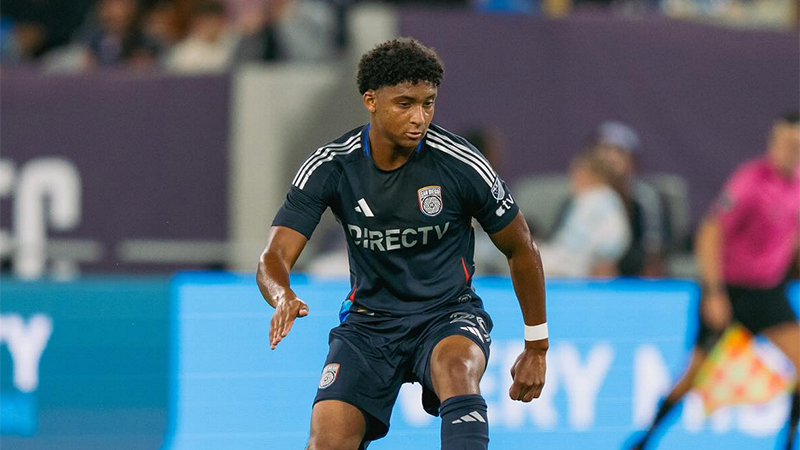
Porter enjoying transition to pro coaching

July 10, 2013
Part 1 in a 2-part series.
Each year, a small handful of elite college players make the jump to the professional level.
It’s a transition that college soccer coaches rarely make.
But that’s just what former Akron head coach Caleb Porter did at the start of this year, swapping his perch at one of college soccer’s most prestigious programs for the Portland Timbers, a club about to enter its third season in Major League Soccer.

Making a smooth transition from college to the pros is no small feat for anyone, but halfway through his first season at the helm of Portland, Porter likes the progress his team has made in that short time.
“We’ve got results, but we’re just scratching the surface of where we want to be,” Porter told TopDrawerSoccer.com. “I think there’s a lot of room for improvement. We’re nowhere near where we want to be and we’re not satisfied. But I think we’re on the right track. In a very short amount of time, six months, we’ve been able to transform the club into a club that’s a realistic contender to hopefully win trophies."
As a head coach at Akron across seven seasons, Porter amassed an impressive haul of honors. Along with a career record of 123-18-17, he led the Zips to the 2010 national title, built a perennial national title contender, and sent on more than a dozen players to MLS ranks.
One of his top priorities with the Timbers was instilling a winning culture in Portland that he had established during his tenure with the Zips.
“I always have high standards and I expect to win every game I’m in, as crazy as that sounds,” he said. “I don’t think you ever have chance to win games unless you go into games expecting to win. More importantly I wanted to create a belief in my players that we can take the field and expect to win every game, no matter who we are playing against, home or away.
“Obviously that doesn’t mean we will win every game, but it has to start with a belief that you can win every game. I think we’ve created that, but again, it’s not me, a lot of it’s the players, the players that we acquired, that we kept, how we put it together. We had a blueprint, a vision of how we wanted to put it together, and I think we’ve done a good job in putting together a group of guys that are experienced, that know how to win in MLS, that are talented, with good leadership.”
In order to fulfill that vision, prior to the start of the season, Porter shuffled the Timbers roster, making a merry-go-round of moves to try and find the right pieces for his style. Through the midway point of the season, 15 new players have been brought in to the squad as he searches for success at the professional level.
The new additions included established MLS players, such as midfielder Will Johnson, forward Ryan Johnson, defender Michael Harrington and veterans from overseas, like midfielder Diego Valeri, forward Frederic Piquonne and defender Mikael Silvestre (who has since suffered a season-ending ACL injury). Prominent holdovers from the previous coaching regime that Porter has relied upon include Rodney Wallace and Darlington Nagbe.
A coach with a well documented style of play – at Akron, he leant his philosophy the nickname “Death by 1,000 passes” – watching a Portland Timbers game can harken past Zip performances. It’s a team that likes to possess the ball most of the time, keeping it on the ground, looking to unlock opposing defenses and employing recognizable tactical approaches.
Although there are obvious similarities between the two teams, Porter explained that he’s adapted his coaching style and learned to be more flexible, bringing different tactical approaches to different matchups.
“I’ve been a coach now for 13 years, and every year my blueprint changes, my philosophy slightly changes,” he said. “And the longer you go through it, the less it changes, but it should change, because the game’s changing. And you figure out what works and what doesn’t work as well. Every team is different, every level is different, so I think you can see with this club that my philosophy is there – we’re a passing team, we’re a pressing team – but I’ve also tried to be very pragmatic.
“With this team it takes time obviously to build into the team you want to be and if you look at our team, we’re built in a way where we can be a possession team, we can be a pressing team, but it doesn’t mean we have to be and doesn’t mean we will be every game. There are games where we’ve gone more direct, games where we’ve gone out of the 4-3-3, played a 4-4-2. There are games where we’ve dropped off a bit more, there are games where we’ve played on the counter attack a bit more. Part of that is just reading every game and the situation and the opponent, part of it’s reading your team, part of it too is me evolving into a bit more well-rounded, perhaps more pragmatic game-by-game approach.”
A lot of that flexibility came from the lessons learned during his stint coaching the U23 Men’s National Team in 2013, as the squad fell short of its Olympic qualification goal. The experience helped him self-evaluate, to figure out ways to improve as a coach, and increased his desire to test himself at a higher level.
And he’s learned quickly as well, knowing that he couldn’t simply copy what he did in Akron – though a lot of the philosophies remain in place.
“To think you’re going to have the ball for 90 minutes is completely unrealistic, to think you’re going to be able to press for 90 minutes is completely unrealistic,” he said. “There will be a lot of games where we are pressing and games where we are possessing, but the key is you have to be set up in a way where your team is adapting and adjusting and still able to be successful when that’s not happening or if it doesn’t make sense in that game, to play that way.”
Early results so far have been positive, with the team holding a much-improved 7-2-9 mark through its first 18 games, advancing to the U.S. Open Cup semifinals. Prominent media outlets have labeled Porter as the mid-season Coach of the Year for the team’s turnaround.
But the main goal returns to the priority of turning the team into a winner. So how many trophies the team wins at the end of each season will be the ultimate measuring stick for Porter.
“My goal was to come in and build a winning culture,” he said. “Come in and create an identity in the club to build a team that was capable of winning trophies. So obviously we haven’t won trophies yet, haven’t accomplished anything, but we’re on the right track. Clearly you can see an identity in the club, clearly you can see that we’re a team that’s been built to win games in MLS.”
Headlines
- Recruiting Roundup: February 9-15
- Professional Signing Tracker: 2025-26
- Ranking the Top 50 MLS Prospects: 2026
- 2026 Women's Division I Transfer Tracker
-
Best U15 Girls Outside of ECNL and GA

- U19 WNT Roster for Portugal Trip
-
2026 Top 50 MLS Prospects: Nos. 31-40

-
ECNL Girls North Atlantic Conf. Preview

-
Commitments: HS Shot-Stopper Stays in NY

-
Best U14 Girls Outside of ECNL and GA

Top 200/150 Club Player Rankings



